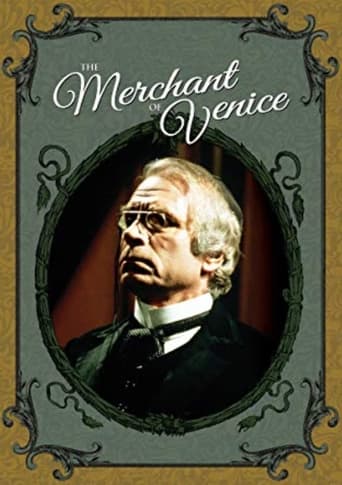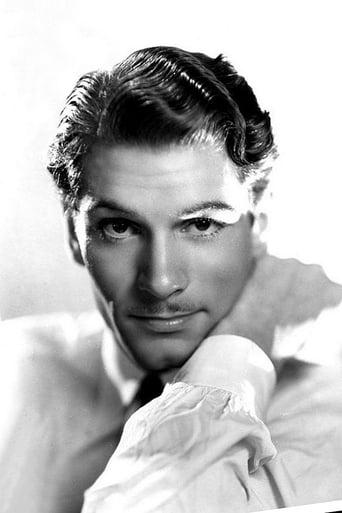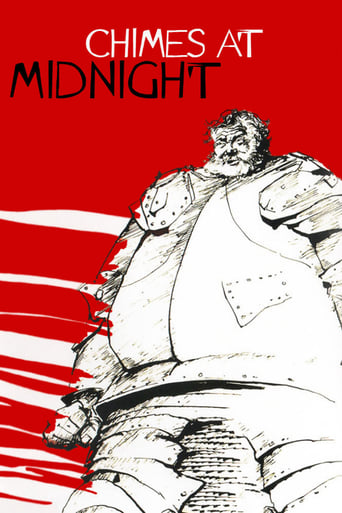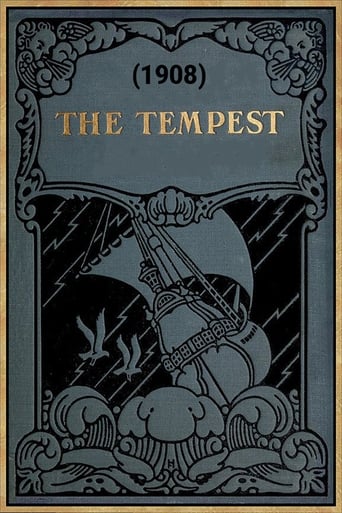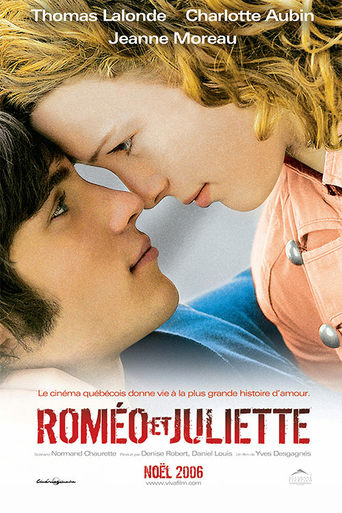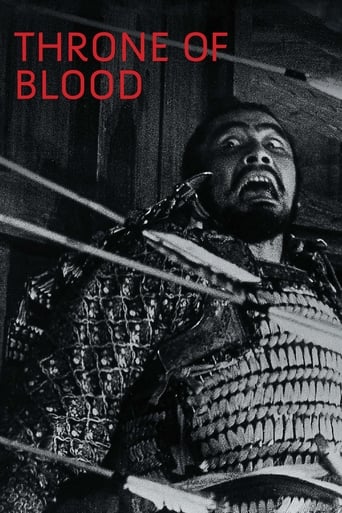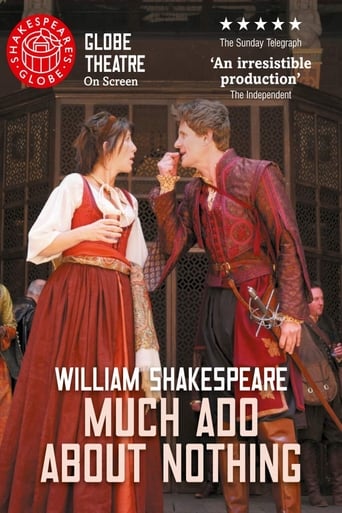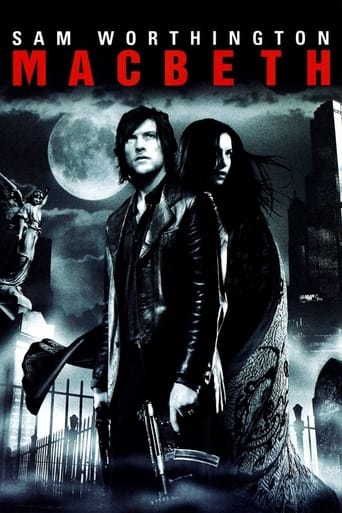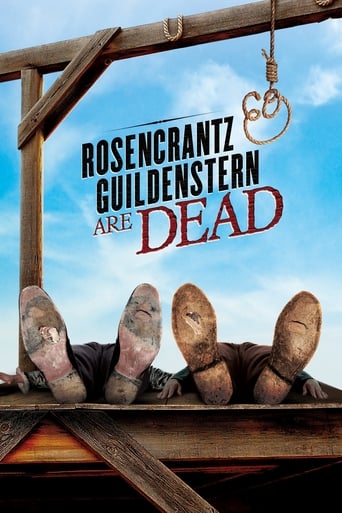The Merchant of Venice (1973)

An Edwardian take on the Shakespeare play starring Laurence Olivier.
Watch Trailer
Cast


Similar titles
Reviews
It's not great by any means, but it's a pretty good movie that didn't leave me filled with regret for investing time in it.
I cannot think of one single thing that I would change about this film. The acting is incomparable, the directing deft, and the writing poignantly brilliant.
This is a coming of age storyline that you've seen in one form or another for decades. It takes a truly unique voice to make yet another one worth watching.
One of the worst ways to make a cult movie is to set out to make a cult movie.
This production of The Merchant of Venice is set in Victorian times, which rather works against the play in some part. The Victorians were far more subtle in their anti-Semitism than the Elizabethans and it just strikes a false note to see it so openly expressed before a Jew by these Victorian gentlemen.Much of the text is there, which is a relief as so many producers think they know better than Shakespeare how to put a play together, although Miller does omit some lines. For instance we don't hear Shylock loudly lamenting his daughter and his ducats, first with 'O my daughter' then 'O my ducats' and switching between the two with the ducats gradually winning out in this tussle between his losses. It's a marvelous moment and, apart from its comic qualities, is very revealing of the avarice at the heart of Shylock.I think Miller left it out because he didn't want people laughing at Shylock too much. But this is after all a comedy rather than a tragedy and it is owing to Shakespeare's genius that we can both laugh at and sympathize with Shylock at different moments of the play. In fact Miller inserts himself too much into this play, especially where Jessica, Shylock's daughter, is concerned. With no justification at all he shows her as becoming discontent with her match with Lorenzo, brooding and regretful. This darkens the close of the play unnecessarily.Miller should have let the play speak for itself without tromping through it in heavy boots to impose a modern sensibility on the actors. It's a shame because those actors are excellent in their roles. This could have been a far better production if Miller had just kept his ego in check a little, but he finds that difficult in most of his productions.It's worth seeing though, as almost every production of Shakespeare is. His words are there and that is really all that counts at the end of the day. BTW at one point Bassanio says to Portia, "Lady, you have bereft me of all words." I know it's the character speaking but for an instant the idea came to my mind of Shakespeare being bereft of words. It was like thinking of the sun not shining or water not being wet. An impossibility!
Easy-to-follow MERCHANT OF VENICE, though the Maggie Smith version is even more accessible. But whereas the Smith version is more contemporary to Shakespeare's times, this version, with the great Laurence Olivier, is in Victorian dress.The acting is generally good, from Jeremy Brett ("Sherlock Holmes"), Denis Lawson ("Star Wars"). The big surprise here is Michael Jayston ("Nicholas and Alexandra"). Usually consigned stiff, priggish characters, Jayston does an excellent job with Gratiano, this play's Mercutio.A few disappointments. Joan Plowright (Mrs. Laurence Olivier) is a superb Shakespearean actor. But she's not pretty enough for Portia. Of course, Portia is rich, so maybe that's okay. In fact, her looks are so mannish she is able to pull off her lawyer role well, just as she was able to play a boy and a girl alike in "Twelfth Night" (1969).The big disappointment in this play is Laurence Olivier. He might as well have brought a knife and fork with him to chew the scenery.I don't know why director Jonathan Miller chose the Victorian era for the setting, but it works extremely well (far better than his "Mikado" where he changes its venue from Japan to Victorian England, thereby missing the whole point of Gilbert and Sullivan's keen satire).Unfortunately, most recent versions have missed a big point about this play. MERCHANT is one of Shakespeare's best, but the fact that Shylock is Jewish usually means he has to be treated more sympathetically in post-World War II times.What's usually missed, as it is in this version, is that the play is called THE MERCHANT OF VENICE, who is Antonio. And the chief antagonism in the play is between Antonio and Shylock, who hate each other.SPOILER: As with most versions, Portia's "Quality of mercy" speech seems to go for naught. But in reality, while she is addressing Shylock, who will have his pound of flesh by the letter of the law, the person affected is Antonio. It seems insensitive to today's anti-Christian crowd who have the same general attitude toward Christians as the Jacobeans had for Jews, but Portia's speech, aimed at Shylock, actually struck the heart of Antonio, the Merchant, who had a change of heart. Once spitting on Shylock's "Jewish gabardine" (whether meant metaphorically or actually), he insists at the end that Shylock become a Christian. Rather than hating Shylock, Antonio now has such mercy for him he wants to be in Heaven with Shylock, eating at the Supper of the Lamb when Shylock rudely refused to eat with Antonio's like on earth.Just as director Miller missed the point about "The Mikado" he misses the entire point of the play, which is Antonio's conversion to mercy. So at the end Shylcok his hauled off to the baptismal font and he makes such a lot of off-stage noise they might be torturing him, and everyone looks after him rather guiltily. Even Antonio the merchant, who believes he's done Shylock a great service.And I have no idea what's wrong with Jessica at the end. But she always was a silly bitch, who treated her father badly.Overall, this is a good version of MERCHANT, though Portia's suitors all horribly overact, even the usually remarkably restrained Charles Kay. They all make the Belmont scenes hard to endure.
This is one of those Shakespeare productions that makes the language, plot and themes all the clearer because of the exceptional acting and the very intelligent direction. Olivier has, with some justification, earned an outstanding reputation as a Shakespearean actor, and while some of his earlier work is, for me, a bit too theatrical, this is pitch perfect. There is no reason that I can discern for setting this play at the turn of the 20th Century - unlike, for instance, the very clever Ian McKellan/Richard Loncraine production of Richard III, which benefited greatly from a 1930s setting that evoked militarism and the rise of National Socialism - and yet it works well, allowing both a degree of peculiarity that the language requires and a familiarity that helps the story transcend its moment in history.As others have commented, this version of The Merchant of Venice works very well because neither Shylock nor Antonio are wholly good or bad. Of course, it makes sense to us that Shylock is not what he seems to his Christian contemporaries, but neither is he completely free of responsibility for what happens to him. Anthony Nicholls' Antonio is likewise more gray than black or white, and more human for it, although not particularly likable, except perhaps to his immediate circle.The surprise, even though it should not be, is Joan Plowright, who does an exceptional job as Portia. Her young woman, particularly her young woman as a man of the law courts, is outstanding and a little troubling in her zeal. All in all, this is a superior production, and one in which nearly every line is made clear and every theme is explored.
When one of the great Shakespearean actors of the 20th Century takes on one of the great "problematic" roles of the English speaking stage, it is close to criminal that the work is not in current DVD release except as part of a hard to find Olivier "Centenary" set.Jonathan Miller's National Theatre production moves the setting to the late 19th Century with Olivier (who had made his more traditional OTHELLO a virtual homage to the 1943 Paul Robeson performance) adopting a look geared to evoke George Arliss' renowned film portrayal of the great Jewish (but baptized into the Anglican faith as a young child) Prime Minister, Benjamin Disraeli. It is a brilliant touch carrying with it a world of unspoken attitude of suffering under long term bias.Shakespeare's Shylock is one of his most problematic roles, but one remarkable for the insight given to what any other author of the time would have made a stereotyped stock villain. Shakespeare himself had almost certainly never met a practicing Jew; unconverted members of the faith having been expelled from his country before he was born in an early pogrom almost inconceivable to modern eyes. Further, there's no avoiding the fact that Shylock the vengeful money lender IS the villain of the piece - betrayed by his daughter, and plotting the downfall of a Venetian businessman (Antonio) who has spat upon him in the unthinking antisemitism of the era and undercut his lending business by lending money to friends at no interest. (One of the great ironies of the antisemitic "money lending" liable is that the Christian church actively forced Jews into the role - frequently financed by non-Jewish rulers - with Christians forbidden by Canon Law from taking interest for loans!) It is tempting to play the sneering villain as overtly lusting for Antonio's blood, but Olivier avoids the trap, only letting flashes of the underlying malevolence peek through in unguarded moments but they are there, as they must, be for an audience to accept the inevitable fall. Modern (post-WWII) Antonios have to work harder to keep sympathy from swinging to Shylock for the injustices he suffers under, especially so when the Shylock is played with as civilized patina as Olivier creates. Anthony Nicholls' calm demeanor manages this almost perfectly - this is very much a "gentleman's MERCHANT..." from all hands.The centerpiece of the "comedy" - far more than the famous but shallow and just a little unbelievable "Suitors' Caskets Scene" in Act II - is the brilliant trial scene in Act V, here with Joan Plowright - Lady Olivier - the "insider" fun is doubled with real life husband and wife playing off each other at the height of their powers - overcoming the supposedly evil Shylock as Portia, passing herself off as a learned male judge, traps him into a position where his scheme to reek revenge on Antonio is turned on the Jew bringing his total, unregretted downfall...and yet...And yet, Shakespeare is not content to let the audience laugh at Portia's cleverness and the destruction of the villain. He makes the whole scene actually dangerous by giving Shylock the most powerful speech of self defense and against mindless bigotry in all English literature ("Hath not a Jew eyes?" etc.). It is akin to the marvelous perverseness by which Iago drives his victim, Othello to madness and murder with a rain of eternally quotable GOOD advise given from bad motives ("Oh beware, my Lord, the green eyed monster!" etc.). With a great Shylock, and Olivier is a decidedly great Shylock, one is forced to see the real pain and injustice which drives him to his destructive acts - and forgo at least a little of the fun Shakespeare's audience expected in the bear bating-like joys of seeing the "monster" vanquished.Director John Sichel ups the ante by having a musical score play Kadish (the Jewish prayer for the dead) over the final moments of the play while Jessica, Shylock's daughter who has robbed and abandoned him and her faith for a Christian lover, reads of being left the part of her Father's estate not confiscated by the State following the trial scene.It is a powerful work, powerfully played, and worth seeing and discussing by as broad an audience as possible. 'Well worth tracking down a copy.

